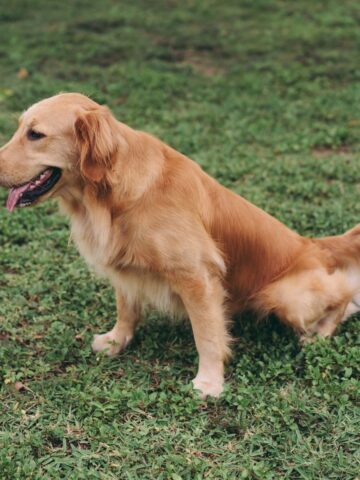Paw-sonalities: Understanding the perfect dog for your personal preferences.
Choosing the perfect dog breed for your lifestyle can be an overwhelming task.
With over 340 recognized breeds, each with their own set of unique characteristics, it can be challenging to determine which breed best suits your lifestyle and living situation.
- Whether you live in a small apartment or a house with a large yard, work from home or have a busy schedule, the breed you choose will greatly impact your daily routine and the bond you share with your dog.
Therefore, it's important to do research on each potential breed, considering factors such as size, energy level, exercise requirements, and temperament.
In this blog post, we will guide you through the process of choosing the right dog breed for your lifestyle with a professional approach, providing valuable insights and information on the key considerations you should take into account before making your decisions.
Our goal is to ensure that you find the perfect match, resulting in a lifelong rewarding and fulfilling relationship to your furry friend.

Research Different Breeds for Characteristics and Temperament
Choosing the perfect dog breed for you lifestyle can be a daunting task.
Dog's come in all shapes, sizes, and temperaments, each with their own unique set of characteristics that may or may not be a good fit for your lifestyle.
- Researching dog breeds will give you insight into their temperaments, energy levels, and exercise requirements.
This information is invaluable in selecting a breed that will suit your lifestyle and fit into your routine.
Taking the time to thoroughly research and understand the different characteristics, personality traits, and energy levels of different breeds will help you make a more informed decision and ultimately lead to a happy, healthy, and stress-free relationship between you and your furry companion.
Active Lifestyle
When considering the perfect dog breed for your lifestyle, it's important to take into account the energy levels of the breed and whether they align with your own.
- If you lead an active lifestyle and enjoy outdoor adventures, consider breeds that are known for their energy and athleticism.
Some breeds are more high-energy and require lots of exercise and playtime to prevent boredom and destructive behavior, while others are more content with lounging on the sofa.
Being realistic about how much time and energy you can commit to exercising and playing with your furry friend.
Those who lead active lifestyles with lots of outdoor activities may be better matched with high-energy breeds such as Border Collies or Australian Shepherds, while those with a more laid-back lifestyle may do better with a smaller, less demanding breed like a Bichon Frise or Shih Tzu.
- Border Collie
- Vizsla
- Weimarner
- Australian Shepherd
- Siberian Husky
- Dalmation
- Labrador Retriever
- German Shorthaired Pointer
- Russell Terrier
Family Friendly Breeds
For families or children, it's important to choose a breed that is known for being good with kids.
Look for breeds that are patient, gentle, and have a natural affinity for family life.
- Beagle
- Bulldog
- Irish Setter
- Labrador Retriever
- Boxer
- Cavalier King Charles
- Golden Retriever
- Newfoundland
- Poodle
Apartment or Small Space Living
Living in an apartment or small space doesn't mean that you can't have a dog.
Some breeds are well-suited to compact living arrangements and have lower exercise needs.
- Shiba Inu
- Shish Tzu
- Bedlington Terrier
- Havanese
- Miniature Pinscher
Grooming Needs of a Dog Breed
The grooming needs of a breed are an important factor to consider when choosing the perfect dog breed for your lifestyle.
- Some dogs require regular grooming to maintain their appearance and health, while others require minimal grooming.
Before selecting a breed, evaluate your own grooming ability and willingness to maintain a dog's coat.
- Longer-haired dogs may require more frequent brushing and trimming to prevent matting and tangling.
Additionally some breeds may require specific grooming procedures such as ear cleaning, teeth brushing, and nail trimming to prevent health issues.
By evaluating the grooming needs of the breed, you can ensure that you are able to provide the appropriate level of care for your new furry companion.
- Poodle
- Doodles
- Afghan Hound
- Komondor
- Bernese Mountain Dog
- Newfoundland
- English Mastiff
- Great Dane
- Black Russian Terrier
Low-shedding and Hypoallergenic Breeds
When choosing the perfect dog breed for you lifestyle, consider the breed's coat and how it may affect your allergies.
If allergies are a concern, consider breeds that are known for being hypoallergenic or have minimal shedding.
- Some breeds of dogs, such as Poodle's and Bichon Frise, have hypoallergenic coats that produce less dander and typically don't trigger allergic reactions as often as other breeds do. These breeds are less likely to trigger allergies in sensitive individuals.
- Additionally, some breeds with short hair, such as the Beagle or Dalmatian, can produce less dander as well.
It's important to note that no dog breed is completely 100% hypoallergenic and it also depends on a person's allergy sensitivity.
If you or anyone in your household suffers from allergies, we recommend you spend some time with different breeds before making a commitment to ensure that you can coexist comfortably.
- Maltese
- Yorkshire Terrier
- Chinese Crested Dog
- Bichon Frise
- Shih Tzu
- Bedlington Terrier
- Poodle
- Portugese Water Dog
- Havanese
Companion and Lap Dogs
If you're seeking a loyal and affectionate companion, there are breeds that thrive in providing constant companionship.
These breeds are known for their desire to be close to you and are great lap dogs.
- Cavalier King Charles Spaniels
- Pug
- Yorkshire Terrier
- Shih Tzu
- Pekingese
- Pomeranian
Trainability and Intelligence
If you're interested in dog training or have specific obedience goals in mind, opt for breeds that are known for their trainability and intelligence.
These breeds are quick learners and excel in obedience and agility training.
- Poodle
- Border Collie
- Doberman Pinscher
- Labrador Retriever
- Golden Retreiver
- Shetland Sheepdog
- German Shepherd
- Papilon
- Australian Shepherd
Guard and Watchdog Breeds
Are you looking for a guard or watchdog?
For those seeking a protective and vigilant companion, certain breeds are known for their natural guarding instincts and make excellent watchdogs.
- German Shepherd
- Bull Mastiff
- Doberman
- Boxer
- Tibetan Mastiff
- Rottweiler
- Giant Schnauzer
- Belgian Shepherd
- Cane Corso
Size Preferences
Consider your size preferences when selecting the perfect dog for your family.
Whether you prefer small, medium, or large dogs, there are breeds available in each category to suit your preference.
- Larger breeds require more room to run and play, which may not be suitable for apartments or small homes.
Additionally, larger breeds often require more exercise and may become destructive if confined to a small space for too long.
- On the other hand, smaller breeds may be better suited to smaller living spaces, but even small dogs need physical activity to maintain their health and well-being.
Ultimately, determining the appropriate size of a dog breed for your living space requires careful consideration of your home and lifestyle.
Financial Responsibility for Caring for a Dog
While dogs undoubtedly bring joy and companionship, they also rquire financial responsibilities such as veterinary care and food expenses.
When choosing the perfect dog breed, you must take these factors into consideration to ensure that you can adequately meet their needs.
- It's important to ask yourself questions such as how much can you afford to spend on foods and regular vet check-ups, and whether or not you have the means to handle unexpected medical situations.
Determining your budget for pet care in advance will help you make an informed decision about which breed will be the best fit for your lifestyle and financial situation.
Consider your Breed's expected Lifespan
An important factor to consider is the breed's expected lifespan in relation to how long you are willing to commit to having a pet.
- Dogs can live 8 to 20 years or more, depending on the breed and individual factors such as health and environment.
Adopting a dog is a significant commitment, and it is important to select a breed that matches your lifestyle and goals for dog ownership.
- If you're looking for a longer term companion, consider breeds that tend to live longer, such as small breeds like Chihuahuas and Yorkshire Terriers, or larger breeds like German Shepherds or Labrador Retrievers.
- On the other hand, if you're looking for a shorter commitment, consider choosing a breed that typically has a shorter lifespan, such as a Great Dane or Irish Wolfhounds.
Ultimately, the lifespan of the breed should be considered alongside other factors such as size, exercise needs, and temperament to ensure that you find the right dog for you and your lifestyle.
Investigate your Local Laws and Regulations
When choosing the perfect dog for you lifestyle, consider the local laws and regulations regarding ownership of certain breeds.
Some cities or neighborhoods may have bans or restrictions on owning certain breeds considered to be dangerous or aggressive, such as Pit Bulls or Rottweiler's.
Local authorities may also impose regulations on these breeds, such as mandatory muzzling when in public areas, or requiring special licensing or insurance.
Additionally, consider the potential for discrimination against certain breeds, which could result in difficulties finding housing or insurance coverage.
By conducting thorough research and understanding local laws, you can make an informed decision about which dog breeds are suitable for your lifestyle, while ensuring you remain in compliance with any applicable rules and regulations.
Final Thoughts on Picking the Perfect Dog
Choosing the perfect dog breed is a crucial step in ensuring a happy and fulfilling life for both you and your furry companion.
By considering factors such as activity level, family dynamics, living situation, and personal preferences, you can narrow down the options and find the perfect breed that fits seamlessly into your lifestyle.
Remember to research and interact with different breeds to gain a better understanding of their traits and characteristics.
With careful consideration, you'll be well on your way to finding your ideal to picking the perfect dog or four-legged addition to your family.






Leave a Reply